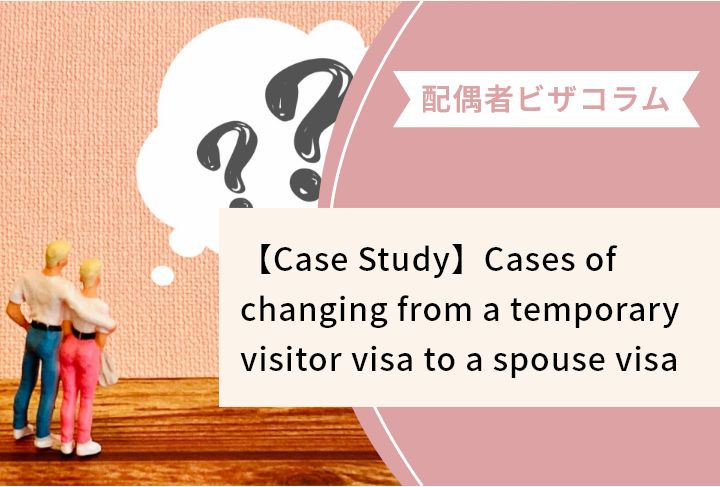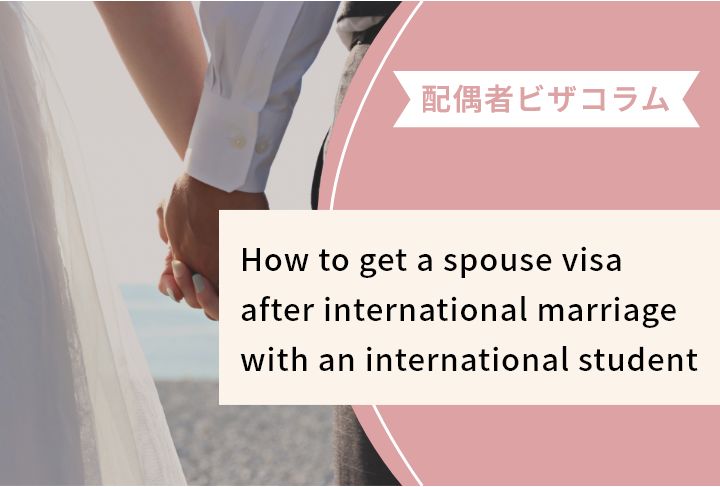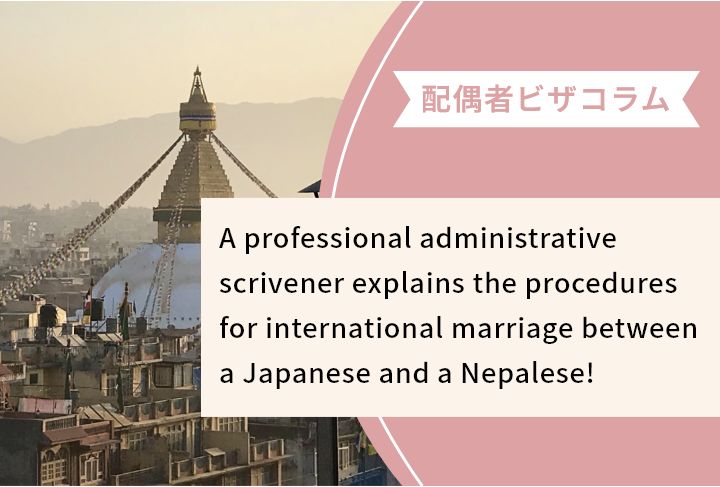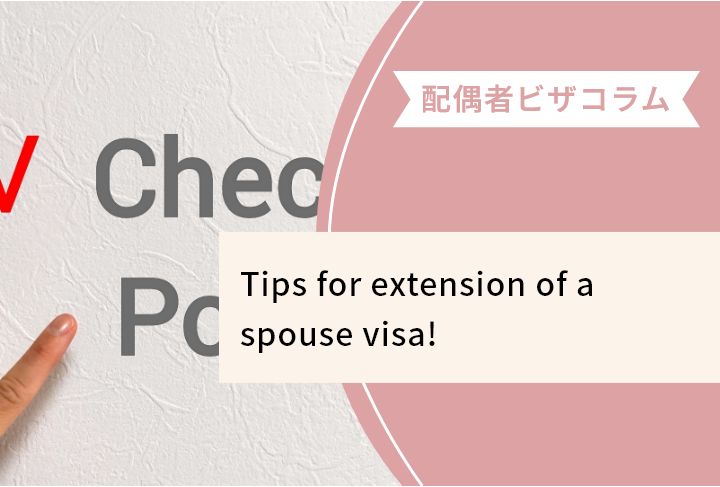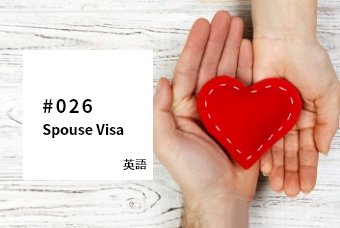What is the visa of spouse or child of permanent resident?
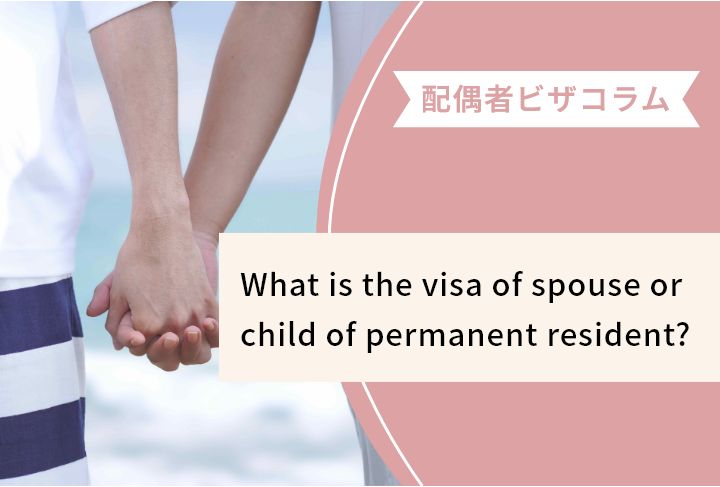
Visas of spouse or child of permanent residents were established to accept spouses of permanent residents and special permanent residents, as well as their children born in Japan.
Many people think that you can obtain the visa as long as you are a spouse or child of a permanent resident, but there are other factors to note such as the applicable range, the meaning of “spouse”, and the applicable range of “child,” etc.
In this article, we will look at the specific details of visas of spouse or child of permanent resident.
Index
1. Points of examination for visas of spouse or child of permanent resident
In this section, we will explain the points of examination for visas of spouse or child of permanent resident.
(1) Persons eligible for a visa of spouse or child of permanent resident
(a) A spouse of a permanent resident or a special permanent resident
(b) A person who was born as a child of a permanent resident or a special permanent resident and has continued to stay in Japan since then
The “spouse” mentioned in (a) means a person who is in a marital relationship. Therefore, if your spouse has passed away or you are divorced, you are not be eligible for a visa of spouse or child of permanent resident. In addition, relationships without marriage and same-sex marriages are not covered by this visa.
Next, let’s look at (b) above.
The “child” here refers to a biological child. Not only a child born to a married couple, but also a child born to an unmarried couple is subject to the visa of spouse or child of permanent resident, if acknowledged as their child.
Cases of an adopted child need attention. Adopted children are not eligible for the visa of spouse or child of permanent resident.
In summary, any
・ child born to a married couple; and
・ child born to an unmarried couple and recognized as their child;
are eligible for a visa of spouse or child of permanent resident.
(2) Place of birth of children with a visa of spouse or child of permanent resident
In case of (b) above, the place of birth is a factor in obtaining a visa of spouse or child of permanent resident.
What this means is that even if your mother has a permanent resident visa and gave birth to you in a foreign country after obtaining re-entry permission, you will not meet the requirements for the visa of spouse or child of permanent resident. In such case, you need a long-term resident visa, instead.
Therefore, even if your father or mother has a permanent resident visa, you need to be careful because the applicable visa differs depending on your place of birth.
(3) Spouses eligible for a visa of spouse or child of permanent resident
Do you always meet the requirements for a visa of spouse or child of permanent resident if you are legally married?
The “spouse” here does not mean someone who had formal marriage because marriage must be substantial marriage. Like the case of a visa of spouse or child of Japanese national, the immigration bureau will carefully examine the history of relationship of the couple and how they got married.
Next, even in case that you meet the above requirements and are a spouse of genuine marriage, you will not be able to obtain a visa of spouse or child of permanent resident if your marriage lacks the stability and continuity.
The financial foundation is a typical index to check the stability and continuity of marriage. In other words, if you do not have stable income, you may not be granted the visa based on the ground that your marriage lacks stability and continuity.
The financial foundation is required also for children to get a visa of spouse or child of permanent resident.
2. Q & A related to visas of spouse or child of permanent resident
Below is a summary of frequently asked questions regarding visas of spouse or child of permanent resident.
Q: After a child is born, if the child’s father or mother loses his/her permanent resident visa, how the child’s visa of spouse or child of permanent resident get affected?
A: To obtain a visa of spouse or child of permanent resident, the father or mother of the child must have a permanent resident visa at the time of birth of the child. Even if the father or mother loses his/her permanent resident visa after the birth, the fact that the child was born as a child of a permanent resident will never change. Therefore, the visa of spouse or child of permanent resident will not be affected.
Q: Before a child was born, the child’s father had passed away. Which visa is applicable in this case?
A: Even if the father with a permanent resident visa passes away before the child is born, the child is still subject to a visa of spouse or child of permanent resident. Therefore, in this case, a visa of spouse or child of permanent resident is applicable.
Q: I currently have a temporary visitor visa. Can I change from a temporary visitor visa to a visa of spouse or child of permanent resident?
A: In order to change from a temporary visitor visa to a visa of spouse or child of permanent resident, the existence of unavoidable circumstances is required. Please contact us for consultation as the judgement concerning such circumstances will be made individually and may defer depending on each applicant’s situation.
Q: A child was born in Japan to a special permanent resident. After the child was born, parents were too busy to submit application, and 60 days of the application period has been already expired. Which visa will be applicable in this case?
A: In theory, if a child is born in Japan as a child of a special permanent resident, within 60 days after birth, parents need to submit an application as stipulated in Article 4 of the “Special Act on the Immigration Control of, Inter Alia, Those Who Have Lost Japanese Nationality Pursuant to the Treaty of Peace with Japan.” In the case in the question, the 60-day application period has been expired, but a visa of spouse or child of permanent resident will be applicable.
In this case, later, the child will have to apply for a special permanent resident visa based on Article 5 of the “Special Act on the Immigration Control of, Inter Alia, Those Who Have Lost Japanese Nationality Pursuant to the Treaty of Peace with Japan”.
(Reference Article)
Article 4, paragraph 2 When a person set forth in the preceding paragraph applies for permission set forth in the same paragraph within 60 days after the date of his/her birth or other cause, the Commissioner of the Immigration Services Agency is to grant permission to the person.Article 5, Paragraph 1 In case of residing under a status of residence listed in the left-hand column of Table II of the Immigration Control Act (excluding status of residence of “Permanent Resident”), a person who has lost Japanese nationality on the basis of the Treaty of Peace or a descendant of a person who has lost Japanese nationality on the basis of the Treaty of Peace, with the permission of the Commissioner of the Immigration Services Agency, may reside in Japan permanently as a special permanent resident as stipulated in this Act.
Article 5, Paragraph 2 When a person set forth in the preceding paragraph applies for permission set forth in the same paragraph, the Commissioner of the Immigration Services Agency is to grant permission to the person. In this case, the decision on the status of residence and the period of stay pertaining to the person who has obtained the permission shall lose their effect.
3. Actual cases of consultation regarding visas of spouse or child of permanent resident
We will introduce some of the inquiries we have actually received and settled in connection with visas of spouse or child of permanent resident.
1) What is the meaning of a child of a permanent resident?
2) What are the consequences if my father loses his permanent resident visa?
3) I am not living with my spouse due to work, but I would like to extend my visa.
4) Can a child born in a foreign country obtain a visa of spouse or child of permanent resident?
5) My financial status is weak, but would I be able to obtain a visa of spouse or child of permanent resident?
6) I want to change from a temporary visitor visa to a visa of spouse or child of permanent resident.
4. Summary of visas of spouse or child of permanent resident
For visas of spouse or child of permanent resident, the interpretations of “spouse” and “child” are the keys.
As for a spouse, it is not enough to be married, but the marriage must be genuine and substantive. As for a child, the meaning of birthplace, child, etc. and other legal understanding are required. In any case, the financial foundation is an important factor in the immigration examination.
If you have any questions regarding visas of spouse or child of permanent resident, please do not hesitate to use our free consultation.









